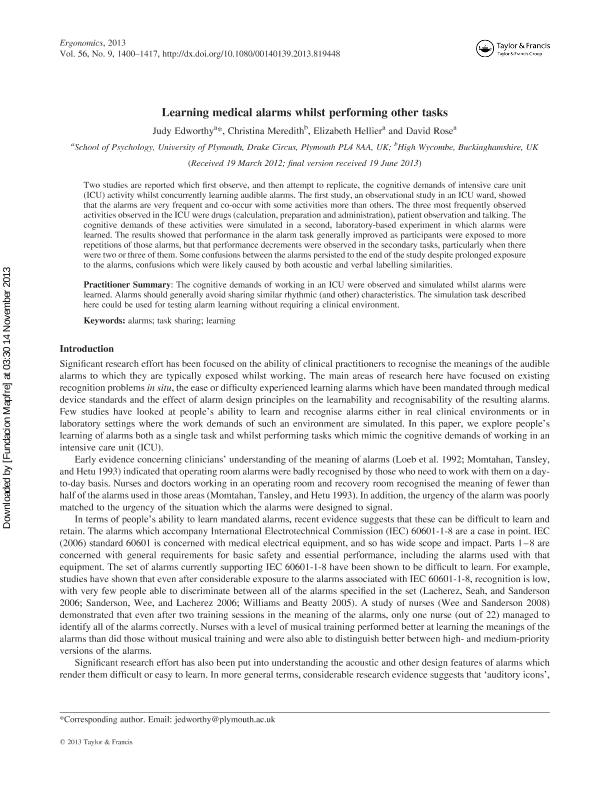Learning medical alarms whilst performing other tasks

Contenido multimedia no disponible por derechos de autor o por acceso restringido. Contacte con la institución para más información.
| Tag | 1 | 2 | Valor |
|---|---|---|---|
| LDR | 00000cab a2200000 4500 | ||
| 001 | MAP20130037653 | ||
| 003 | MAP | ||
| 005 | 20131118120132.0 | ||
| 008 | 131114e20130913esp|||p |0|||b|spa d | ||
| 040 | $aMAP$bspa$dMAP | ||
| 084 | $a875 | ||
| 245 | 0 | 0 | $aLearning medical alarms whilst performing other tasks$cJudy Edworthy...[et.al] |
| 520 | $aTwo studies are reported which first observe, and then attempt to replicate, the cognitive demands of intensive care unit (ICU) activity whilst concurrently learning audible alarms. The first study, an observational study in an ICU ward, showed that the alarms are very frequent and co-occur with some activities more than others. The three most frequently observed activities observed in the ICU were drugs (calculation, preparation and administration), patient observation and talking. The cognitive demands of these activities were simulated in a second, laboratory-based experiment in which alarms were learned. The results showed that performance in the alarm task generally improved as participants were exposed to more repetitions of those alarms, but that performance decrements were observed in the secondary tasks, particularly when there were two or three of them. Some confusions between the alarms persisted to the end of the study despite prolonged exposure to the alarms, confusions which were likely caused by both acoustic and verbal labelling similarities. | ||
| 773 | 0 | $wMAP20100019818$tErgonomics : the international journal of research and practice in human factors and ergonomics$dOxon [United Kingdom] : Taylor & Francis, 2010-$x0014-0139$g02/09/2013 Volumen 56 Número 9 - septiembre 2013 |

